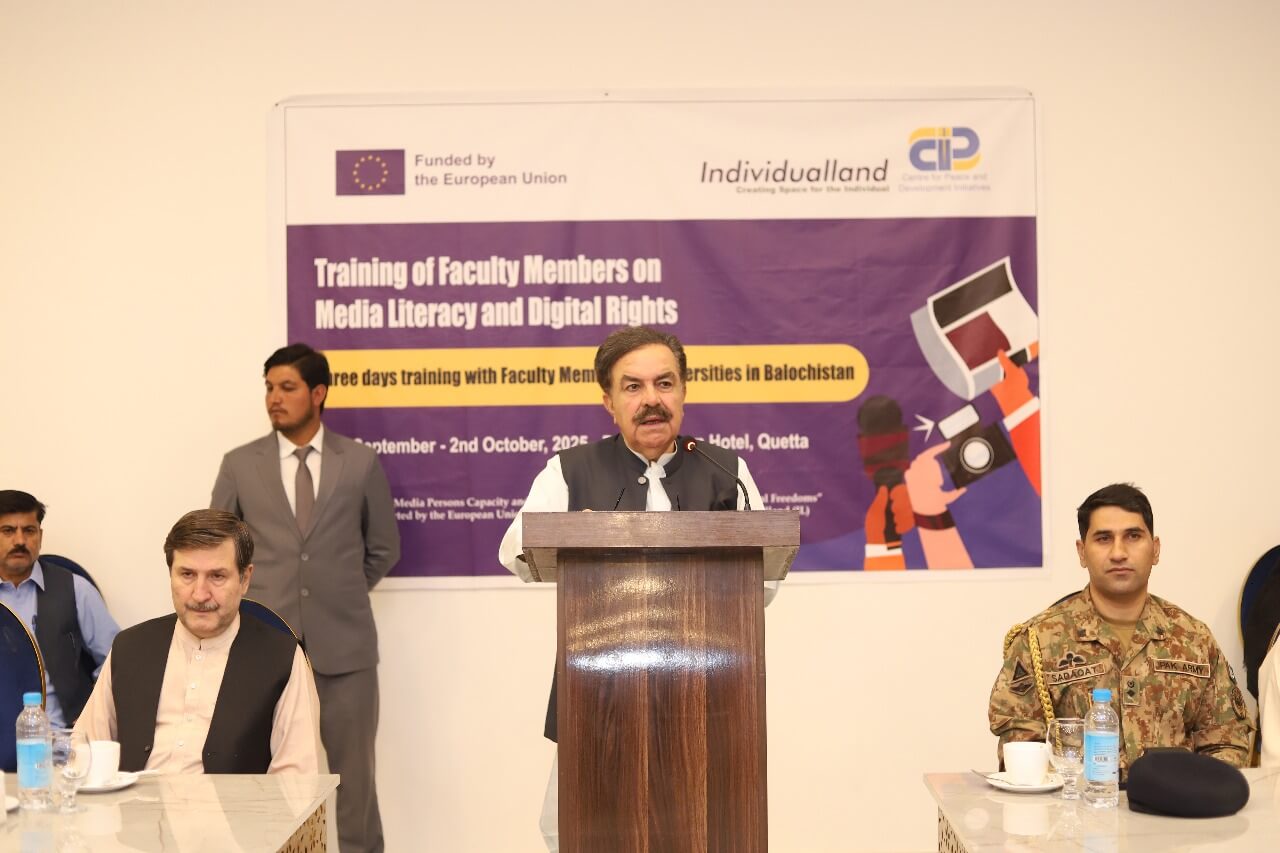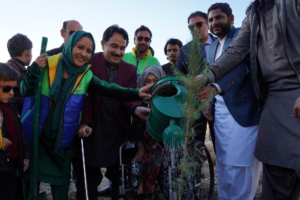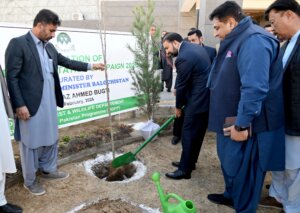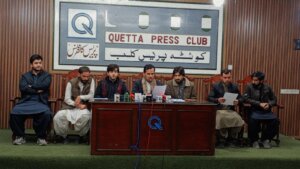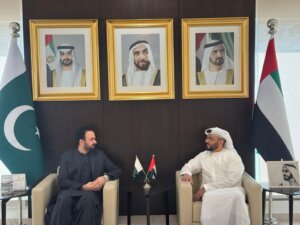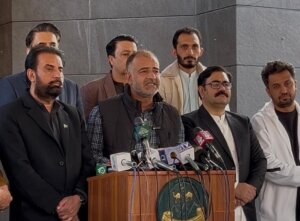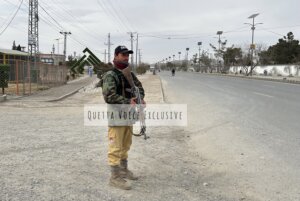Qaseem Shah:
Quetta: Governor Balochistan Jaffar Khan Mandokhel has inaugurated a three-day Media Information Literacy (MIL) training program for faculty members of public universities across the province. The initiative, organized by Individualland Pakistan (IL) under a European Union-funded project, aims to equip educators with skills to counter misinformation and strengthen youth engagement in responsible media practices.
More than 30 faculty members from universities including BUITEMS and other higher education institutions are attending the training in Quetta. They will later transfer their learning to over 500 students across Balochistan, creating a multiplier effect in promoting critical thinking, democratic culture, and fact-checking skills among youth.
Speaking at the opening, Khoso Saifullah, IL’s Program Manager and a fact-checking advocate, stressed the importance of engaging academia in combating information disorder. He said:
“When students are not given spaces to openly discuss politics and civic issues, they rely solely on social media, where misinformation spreads unchecked. MIL empowers both teachers and students to think critically and engage responsibly.”
Governor Mandokhel not only inaugurated the training but also participated in a one-hour interactive session on information disorder. Sharing his views, he remarked:
“As politicians, we seldom analyze information critically. Media literacy is essential to counter disinformation in politics and society. I appreciate Individualland Pakistan and the EU for bringing this initiative to Balochistan.”
The training is part of IL’s broader efforts to strengthen media literacy, promote fact-checking, and protect fundamental rights in regions facing political and social challenges. IL also announced plans to expand its e-learning platforms and collaborative programs in partnership with the Governor’s office to ensure sustainable impact.
This EU-funded media training in Balochistan marks a significant step toward preparing the next generation against disinformation, building media resilience, and promoting informed democratic participation.
